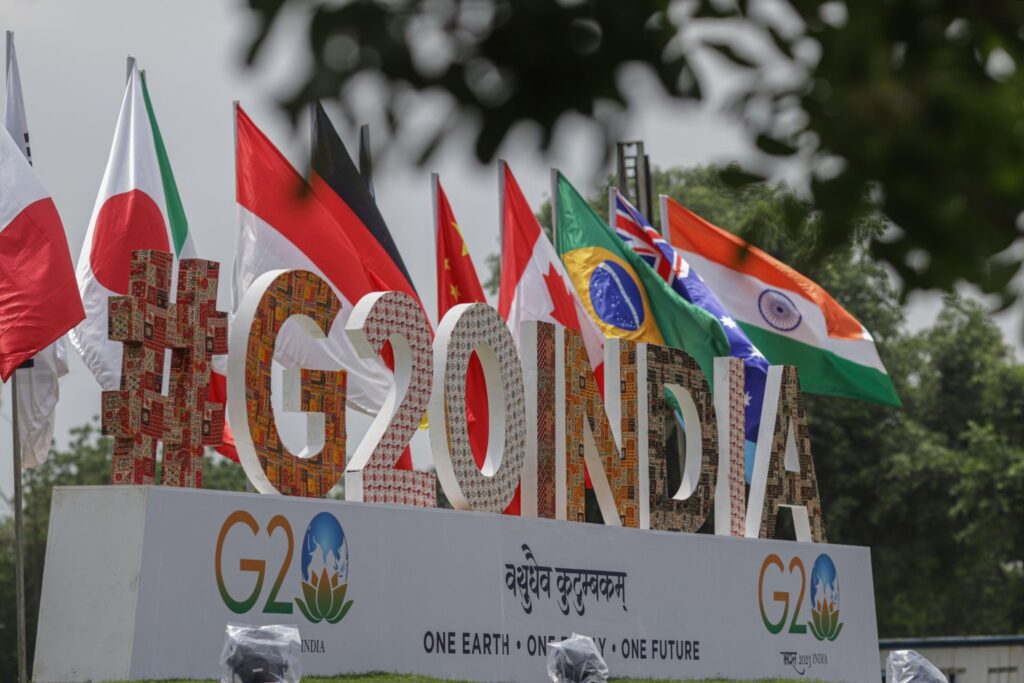The inaugural WHO Traditional Medicine Global Summit, set for August 17-18, 2023, will spotlight the expansive capacities and applications of traditional medicine within a context of vital challenges and prospects for achieving universal health coverage and holistic well-being.
The summit’s primary objective is to galvanize political dedication and collaborative efforts toward the evidence-based incorporation of traditional medicine, aiming to enhance health and well-being for both individuals and the planet.
The event’s focus on pertinent themes linked to traditional medicine seeks to outline a trajectory for amplifying scientific progress in traditional medical systems and practices.
These themes encompass research, evidence and learning, policy, data and regulation, clinical practice, innovation and digital health, biodiversity and conservation, and the just distribution of benefits.
Co-hosted by the Government of India, which holds the G20 presidency in 2023, the summit will coincide with the G20 Health Ministerial meeting.
Themes and Dialogue
The summit’s schedule and agenda are thoughtfully structured around the core themes of evidence and learning, data and regulation, biodiversity, and innovation and digital health.
A shared dialogue with G20 ministers, to be held during the summit, will spotlight the contributions of indigenous knowledge and traditional medicine to societal and economic well-being.
An Expert Advisory Panel, composed of nine members spanning diverse WHO regions, guides the summit’s content, coherence, structure, speakers, outcomes, lessons, and subsequent actions.
The summit’s proceedings will be available for live viewing on this page, with translations accessible in all United Nations languages and Hindi.
Elevating the Evidence and Learning Domain
One significant impediment to enabling access to secure and high-quality traditional and complementary medicine (T&CM) services, including their integration into national health systems, lies in the inadequate scientific understanding of the safety and effectiveness of T&CM products and practices.
Strengthening the evidence foundation will empower nations to formulate appropriate mechanisms and policy directives for the regulation, quality control, and monitoring of T&CM practices, practitioners, and products, aligning with national contexts and priorities.
During the summit, WHO and partnering entities will present a range of contributions, including evidence maps showcasing T&CM’s clinical effectiveness, epistemological insights, research methodologies, the utilization of AI to generate evidence, and a nation’s trajectory in establishing a T&CM research framework.
Navigating Data and Analytics
Barriers to incorporating T&CM into health systems, in line with national contexts and priorities, encompass the absence of policies, regulations, funding, and data pertaining to the resources, utility, and safety of T&CM. An additional challenge lies in the absence of a robust framework for training the T&CM workforce.
This workstream will engage with themes such as country-specific data and global evidence, including revelations from WHO’s third global survey on T&CM, insights into regional trends, and exemplar national practices.
The workstream will also address policy, legal, and regulatory landscapes globally, data collection, routine information systems, workforce development encompassing education and regulation, and the integration of T&CM for well-being across all age groups.
Frontiers of Innovation and Digital Health
The realm of traditional medicine is witnessing rapid modernization, notably in how it’s studied. Artificial intelligence (AI) emerges as a transformative force, reshaping the study and practice of traditional healing systems.
AI’s advanced algorithms and machine learning capabilities have facilitated the exploration of extensive traditional medical wisdom, unveiling evidence and recognizing hitherto elusive patterns.
The summit’s accentuation on progressing traditional medicine’s knowledge through a forward-looking research agenda carries substantial implications for global health.
Amidst these advancements, it’s imperative to ensure the responsible and equitable utilization of these technologies.
This involves bolstering digital infrastructure and addressing ethical considerations, such as data privacy, consent, bias, and fair access.
During the summit, WHO and collaborators will delve into the potential of advancing T&CM scientifically and based on evidence through the incorporation of new technologies. This discourse will also address emerging digital capabilities and the requisite safeguards.
Harmonizing Biodiversity, Sustainability, and Fairness
Biodiversity conservation is a pivotal matter linked to the sustainable use of T&CM.
The summit will serve as a platform for identifying and exchanging best practices concerning biodiversity and traditional knowledge’s sustainable utilization.
It aims to foster the exchange of insights regarding the use of traditional and ancestral medicine, promoting it through intercultural dialogues for community health.
Additionally, the event will facilitate information sharing about access practices and equitable benefit-sharing by countries, including discussions on the application of intellectual property rights.
The term “traditional medicine” encompasses traditional, complementary, integrative medicine/health, and well-being systems.


